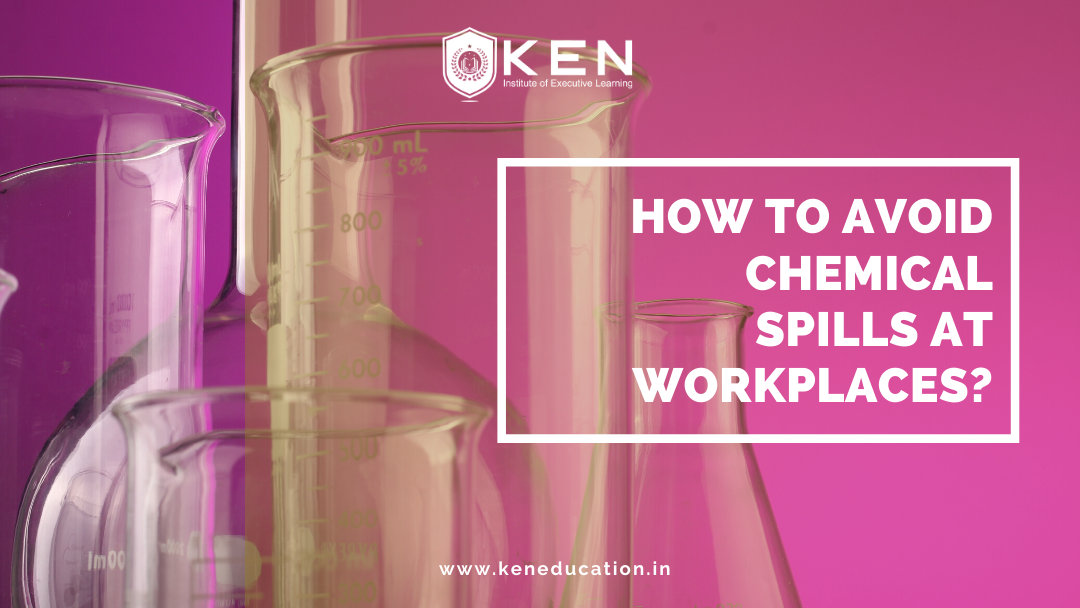
To Avoid Chemical Spills is the most important necessity of the Safety System at the workplace. Various types of chemicals are an inevitable part of every industry, among those chemicals, many of them are highly hazardous. Workers have to handle those chemicals now and then and in this process, if they are exposed to those chemicals, they might suffer from severe burns, damaged eyesight, damage to the respiratory tract, or even carcinogenic effects.
Besides the health risks chemicals spread in the environment disturb the ecological balance. It may damage equipment, and machinery, and might lead the companies to financial losses.
The amount of spill doesn’t matter, the nature of the chemical is responsible for the hazards, how small the quantity might be. A few drops of dangerous chemicals can send workers to emergency treatment.
A Safety System can alleviate the risk of chemical spillage by strategizing requisite preventive criteria.
Following are the Top Tips to Avoid Chemical Spills at Work Places
STORAGE AREA
- Chemicals should be stored in covered areas with appropriate shades; they should not be exposed to rain or the heat of the sun.
- Ensure that Shelving units for containers are fastened to the wall or floor to acquire maximum stability.
- Use shelves with raised edges to prevent containers from slipping off.
- On each shelf, particulars of chemicals and safe loading instructions should be indicated clearly.
- Do not load shelves beyond their capacity. An overcrowded or jam-packed shelf is the most dangerous, also difficult to find a container of spillage to sort out.
- Store heavier containers as close to the floor as possible to ensure easy access.
EQUIPMENT THAT MINIMIZE CHEMICAL SPILLING
- SPILL KIT: It contains instant chemical absorbing materials.
- BUNDED TRAY: It is a removable spill deck that prevents nearby things from immersing in spilled chemicals.
- SPILL CONTAINMENT PALLET: It is used for capturing and containing spills from leakage of chemicals.
- STORING CONTAINERS: Mostly thick-walled containers are preferred on steel or glass containers, as plastic is non-reactive with most of the chemicals and it is non-breakable also. But many times containers of the same material are not appropriate for other chemicals.
- For ‘Acids’ corrosion-resistant containers are used.
- For ‘Flammable Solvents’ containers made from specialized fire-resistant wood or metal are perfect to store.
- Store ‘Hygroscopic Chemicals’ in Desiccators. Desiccators are sealable enclosures containing moisture-preserving substances.
- ‘Highly Inflammable Chemicals’ are volatile. It is essential to store them in cold storage, in explosion-proof containers. Care should be taken that temperature should not reach to their Flash Point (lowest temperature at which substance can ignite).
LABELS ON CONTAINERS
According to the regulations from OSHA (Occupational Safety and Health Administration), containers must have labels for the identification of content with a warning of imminent dangers.
SDS (Safety Data Sheet)
According to OSHA HAZCOM STANDARDS, the SDS sheet contains information about chemicals in the container, its properties, uses, hazards, and safety precautions while handling, storage, and transfer.
SDS helps workers approach a specific chemical they need and prevents them from panicking by taking the wrong container.
SAFE PRACTICE TO AVOID CHEMICAL SPILLS
- Regular Inspection: Make sure the parts of the container are free of leakage owing to any deterioration from corrosion. Screw caps and closures should be checked for any distortion.
- Transportation: For transportation of chemical containers vehicles with high edges, suitable for glass containers must be used. Do not overload the vehicle. Trap the containers securely.
- Decantation: To avoid chemical spills, use a receiving container of adequate volume to prevent overfilling. Use pumps or other mechanical methods for decantation. Manual pouring is extremely risky. Use funnels and keep containment pallets handy to catch leaking chemicals if there is any leakage. Use only safe, approved containers.
Avoid Chemical Spills
SAFETY HABITS FOR WORKERS
- Be aware of their safety.
- Read labels and SDS carefully.
- Place the Same chemical in the same place.
- Not to pick the wrong container incautiously or in hast.
- Keep calm and act as a safety strategy in case of a spill.
To Avoid Chemical Spills at Workplaces we should always be careful. A chemical spill is not only hazardous for humans and assets but it affects the environment badly. It is also a threat to aquatic/marine life. Able to contaminate soil, ultimately resulting in severe ecological damage.
“Join Ken Institute for comprehensive Health and Safety courses led by expert faculty, ensuring your readiness to tackle workplace fire emergencies effectively.”
Get in touch with us at: info@keneducation.in
Visit our website: www.keneducation.in
Call us on +917569034271
Let’s connect on Facebook, YouTube, LinkedIn, and Instagram.


3 Comments
It is a vital and impotant topic to discuss due it happens on day to day life activities and many people still have difficulties in dealing with chemical spoilage mostly in large chemical firms.
Thank you Ramadhan 🙂
That’s an awesome point
Comments are closed.